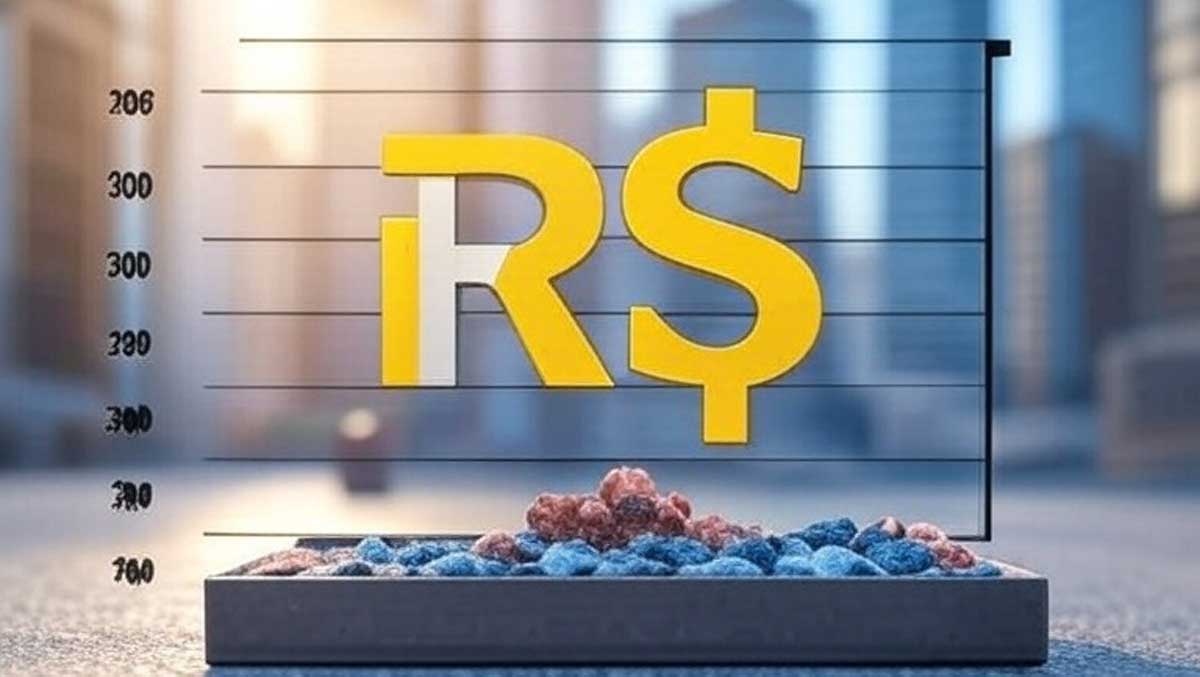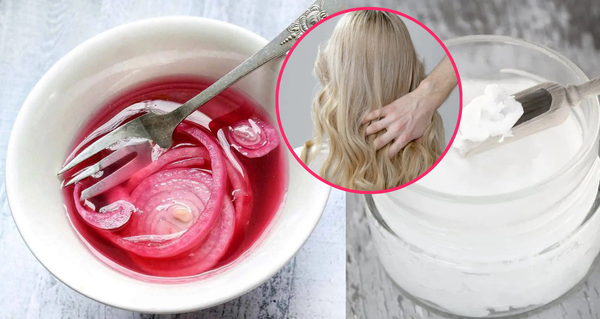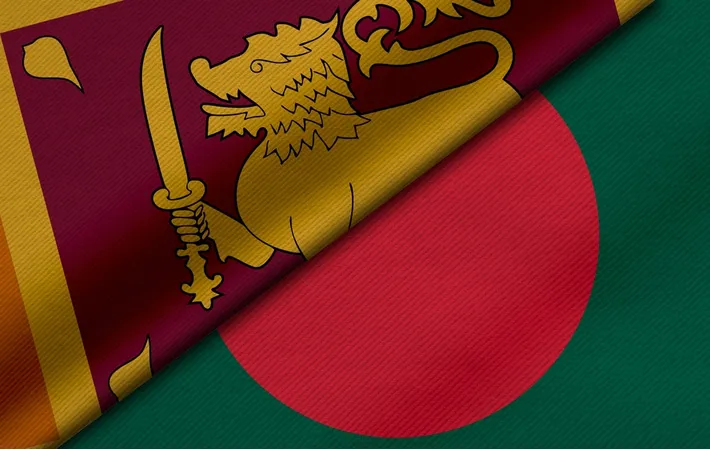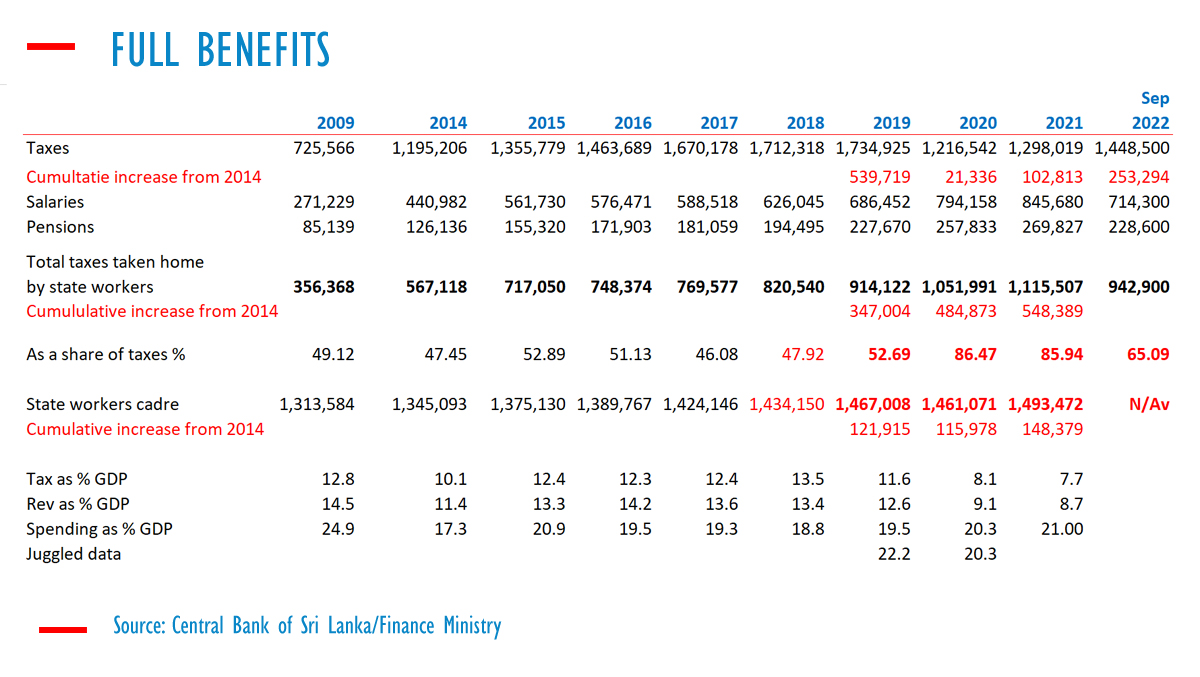Friday November 7, 2025 4:54 pm
Friday November 7, 2025 4:54 pm
ECONOMYNEXT – Sri Lanka’s rupee closed broadly flat at 304.80/90 to the US dollar in the spot market Friday from 304.85/95 the previous day, dealers said, while bond yields closed down. There was strong demand for the 2028-29 tenors, they said.
A bond maturing on 15.12.2026 closed at 8.05/10 percent, down from 8.05/15 percent.
A bond maturing on 15.09.2027 closed at 8.65/74 percent, down from 8.70/75 percent.
A bond maturing on 15.02.2028 closed at 8.92/97 percent, down from 8.97/9.02 percent.
A bond maturing on 01.07.2028 closed at 9.00/04 percent, down from 9.05/11 percent.
A bond maturing on 15.09.2029 closed at 9.40/45 percent, down from 9.44/48 percent.
A bond maturing on 15.12.2029 closed at 9.44/48 percent, down from 9.45/49 percent.
A bond maturing on 01.07.2030 closed at 9.62/66 percent, down from 9.65/68 percent.
A bond maturing on 15.12.2032 closed at 10.35/40 percent, down from 10.35/41 percent.
A bond maturing on 01.11.2033 closed at 10.50/55 percent, down from 10.52/57 percent.
A bond maturing on 15.09.2034 closed flat at 10.60/70 percent. (Colombo/Nov7/2025)
Friday November 7, 2025 5:06 pm
Friday November 7, 2025 5:06 pm
ECONOMYNEXT – Sri Lanka will begin linking businesses to the tax office starting with exporters who have enterprise resource planning software, a budget for 2026 said.
An API had been developed for companies running ERP system.
“In the first phase, the system will be expanded to cover export-oriented enterprises and integration with selected pilot companies through the API mechanism,” the budget for 2026 said.
“In the second phase, all VAT-registered taxpayers will be included.
“In the third phase, the e-invoice system is expected to be deployed through point-of-sale (POS) machines to record transactions in real time, improve tax compliance, and enhance the efficiency and transparency of VAT administration through a fully web-based platform.”
Separately the threshold for VAT will be reduced to 36 million rupees a year from 60 million, the budget speech said. (Colombo/Nov07/2025)
Continue Reading
Friday November 7, 2025 4:15 pm
Friday November 7, 2025 4:15 pm
ECONOMYNEXT – Estate worker wages are to be hiked to a total of 1,750 rupees a day, Sri Lanka president Anura Kumara Dissanayake said presenting the budget for 2026.
“We believe that estate workers should be paid a fair daily wage commensurate with their work,” President said.
The current minimum wage of an estate worker is 1,350 rupees a day.
It has been proposed to increase the wage to 1,550 rupees a day from January 2026.
Consecutive Sri Lanka governments have interfered in the wages of plantations workers, which has discouraged productivity based wages which lead to higher tea production and earnings, according to industry officials.
An additional 200 rupees will be given daily by the government to encourage estate workers to come to work, Dissanayake said.
“This is as an incentive for them to show up for the 25 days.”
The government will allocate 5,000 million rupees for this. (Colombo/Nov07/2025)
Continue Reading
Friday November 7, 2025 4:03 pm
Friday November 7, 2025 4:03 pm
ECONOMYNEXT – Sri Lanka will reduce the threshold for value added tax to 36 million rupees a year from the current 60 million rupees, effective April next year, according to a budget for 2026.
Some businesses which were splitting their businesses in two avoid paying VAT will be brought in to the VAT by reducing the threshold, he said.
The maximum import duty rate will be raised from 20 to 30 percent, though para tariffs will be phased out.
Sri Lanka has high protectionist taxes made up of import duties, CES and PAL, which has made inputs expensive and blocked export diversification unlike in free trading East Asia.
High para tariffs as well as import duty has also allowed politically connected businesses to exploit customers to with high prices, in building materials and other products.
There are very high food taxes, which critics say has promoted malnutrition.
the current import duty bands of 0, 10 percent, 15 percent and 20 percent, will be increased to 0, 10 percent, 15 percent, 20 percent, 30 percent.
A 100 rupee a kilogram CESS on imported fabric to be removed and replaced with value added tax, as in the case of local fabric.
A social contribution levy will be imposed on cars from April 2026.
RELATED : Sri Lanka budget 2026 targets deficit of 5.1-pct, 2025 out-turn 4.5-pct
(Colombo/Nov07/2025)
Continue Reading









Leave a Reply